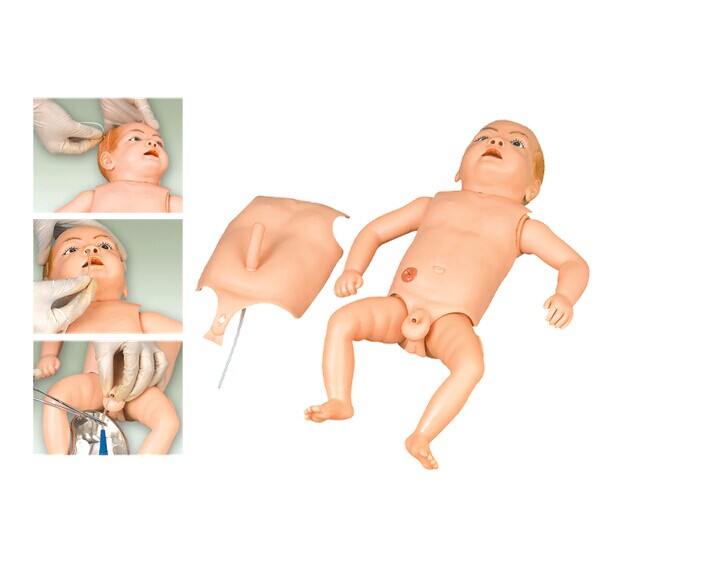The infant care model can indeed provide targeted simulation training, which has been verified and reflected in several aspects.
The design takes into account the diversity and complexity of infant care. Not only do they have a realistic look and feel, they also have a variety of simulation functions built in to respond to different care scenarios and needs. For example, some advanced baby care models are able to simulate different emotional states of infants (such as hunger, wet diapers, heat, etc.) and trigger corresponding responses through specific actions (such as feeding, changing diapers, taking temperature, etc.). This design enables the model to be simulated and trained for different nursing needs.

It can simulate nursing operations in a variety of real scenarios, thus providing rich training content. These scenarios include, but are not limited to, routine care (such as feeding, changing diapers, cleaning, etc.), first aid treatment (such as CPR, hemostasis, etc.), and care for special conditions (such as jaundice, pneumonia, etc.). Through simulation training in different scenarios, nursing staff can master infant nursing skills more comprehensively and improve their ability to cope with emergencies.
According to different training objectives and the level of students, the model can also provide personalized training programs. For example, for beginners, you can start with basic daily care operations; For nurses with some experience, they can focus on training advanced skills such as first aid treatment and special disease care. In addition, some models have evaluation capabilities that provide real-time feedback on the student's operation, helping the student to find and correct errors in a timely manner.
Infant nursing model is widely used in medical education, vocational training and family nursing education. In medical education and vocational training, they are used as important teaching tools to help trainees acquire infant care skills in a risk-free environment; In the family care education, they become the new parents' right hand to help them better understand and master the knowledge of infant care.
To sum up, the infant care model can provide targeted simulation training to help nurses master infant care skills comprehensively and improve nursing quality and safety.
